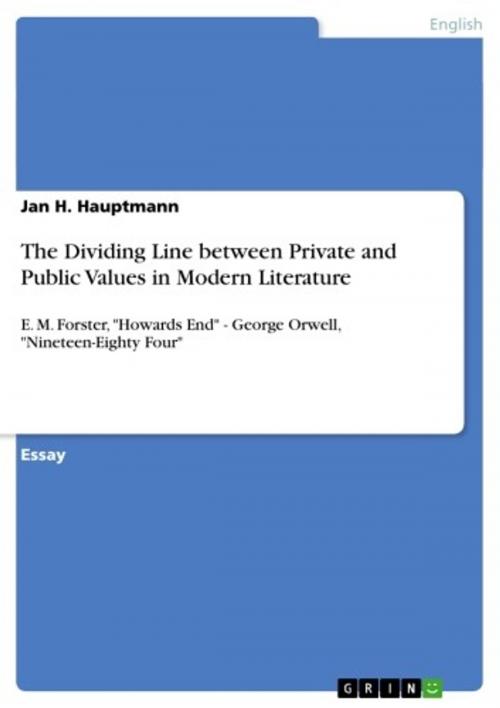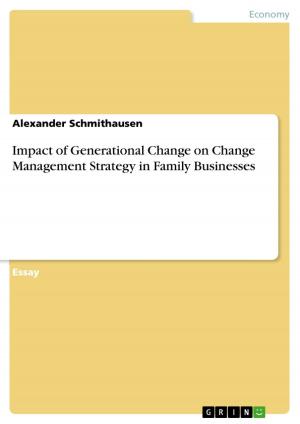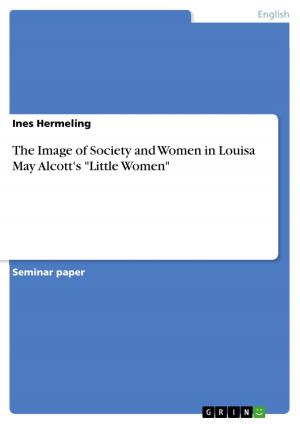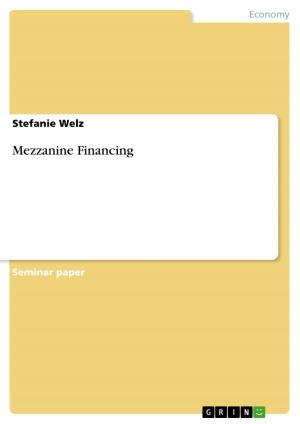The Dividing Line between Private and Public Values in Modern Literature
E. M. Forster, 'Howards End' - George Orwell, 'Nineteen-Eighty Four'
Fiction & Literature, Literary Theory & Criticism, British| Author: | Jan H. Hauptmann | ISBN: | 9783640215126 |
| Publisher: | GRIN Publishing | Publication: | November 19, 2008 |
| Imprint: | GRIN Publishing | Language: | English |
| Author: | Jan H. Hauptmann |
| ISBN: | 9783640215126 |
| Publisher: | GRIN Publishing |
| Publication: | November 19, 2008 |
| Imprint: | GRIN Publishing |
| Language: | English |
Essay from the year 2007 in the subject English Language and Literature Studies - Literature, grade: 1,3, Queen's University Belfast (School of English), course: Literature and the Politics of Modernity, 11 entries in the bibliography, language: English, abstract: This essay focuses on two modern literary works by E.M. FORSTER and George ORWELL. While FORSTER's fourth published novel Howards End was already written in the early twentieth century (1910), ORWELL's famous dystopia Nineteen Eighty-Four was only published in 1949 and may therefore be considered as a late modern work. The historical background of the two novels obviously differs to a great extent. On the edge of the First World War, E.M. FORSTER was particularly concerned with a disrupted society under the direct influence of the significant changes in modern social life. The increasing forces of imperialism and capitalism and tendencies of a growing urbanisation largely changed the lives of people, directly affecting their private and public spheres. When ORWELL wrote his novel under the influence of the Second World War, modern life had additionally been shaken up by two world wars and the effects of totalitarian systems in Europe. Despite the historical gulf between Orwell and Forster, which makes a direct comparison of their works impossible, this paper will concentrate on the private and public values of the novels' characters and thus also pay attention to probable political notions of the authors. It will particularly figure out if the two writers either endorse or contest a dividing line between private and public values, additionally taking into consideration formal features as well as the overall plot. Forster's novel Howards End predominantly deals with the interrelations of two middle class families called the Schlegels and the Wilcoxes. Despite belonging to the same class, their actual social background differs to a great extent. Margaret and Helen Schlegel are initially depicted as not being English 'to the backbone', which is not only true because of their German origins, but also because of their idealist attitude they seem to have adopted from their father, who rather was 'the countryman of Hegel and Kant, [...] the idealist, inclined to be dreamy, whose Imperialism was the Imperialism of the air'. Idealism and anti-imperialism are obviously not to be considered as being very English any more, but rather seem to have died out all over modern Europe.
Essay from the year 2007 in the subject English Language and Literature Studies - Literature, grade: 1,3, Queen's University Belfast (School of English), course: Literature and the Politics of Modernity, 11 entries in the bibliography, language: English, abstract: This essay focuses on two modern literary works by E.M. FORSTER and George ORWELL. While FORSTER's fourth published novel Howards End was already written in the early twentieth century (1910), ORWELL's famous dystopia Nineteen Eighty-Four was only published in 1949 and may therefore be considered as a late modern work. The historical background of the two novels obviously differs to a great extent. On the edge of the First World War, E.M. FORSTER was particularly concerned with a disrupted society under the direct influence of the significant changes in modern social life. The increasing forces of imperialism and capitalism and tendencies of a growing urbanisation largely changed the lives of people, directly affecting their private and public spheres. When ORWELL wrote his novel under the influence of the Second World War, modern life had additionally been shaken up by two world wars and the effects of totalitarian systems in Europe. Despite the historical gulf between Orwell and Forster, which makes a direct comparison of their works impossible, this paper will concentrate on the private and public values of the novels' characters and thus also pay attention to probable political notions of the authors. It will particularly figure out if the two writers either endorse or contest a dividing line between private and public values, additionally taking into consideration formal features as well as the overall plot. Forster's novel Howards End predominantly deals with the interrelations of two middle class families called the Schlegels and the Wilcoxes. Despite belonging to the same class, their actual social background differs to a great extent. Margaret and Helen Schlegel are initially depicted as not being English 'to the backbone', which is not only true because of their German origins, but also because of their idealist attitude they seem to have adopted from their father, who rather was 'the countryman of Hegel and Kant, [...] the idealist, inclined to be dreamy, whose Imperialism was the Imperialism of the air'. Idealism and anti-imperialism are obviously not to be considered as being very English any more, but rather seem to have died out all over modern Europe.















